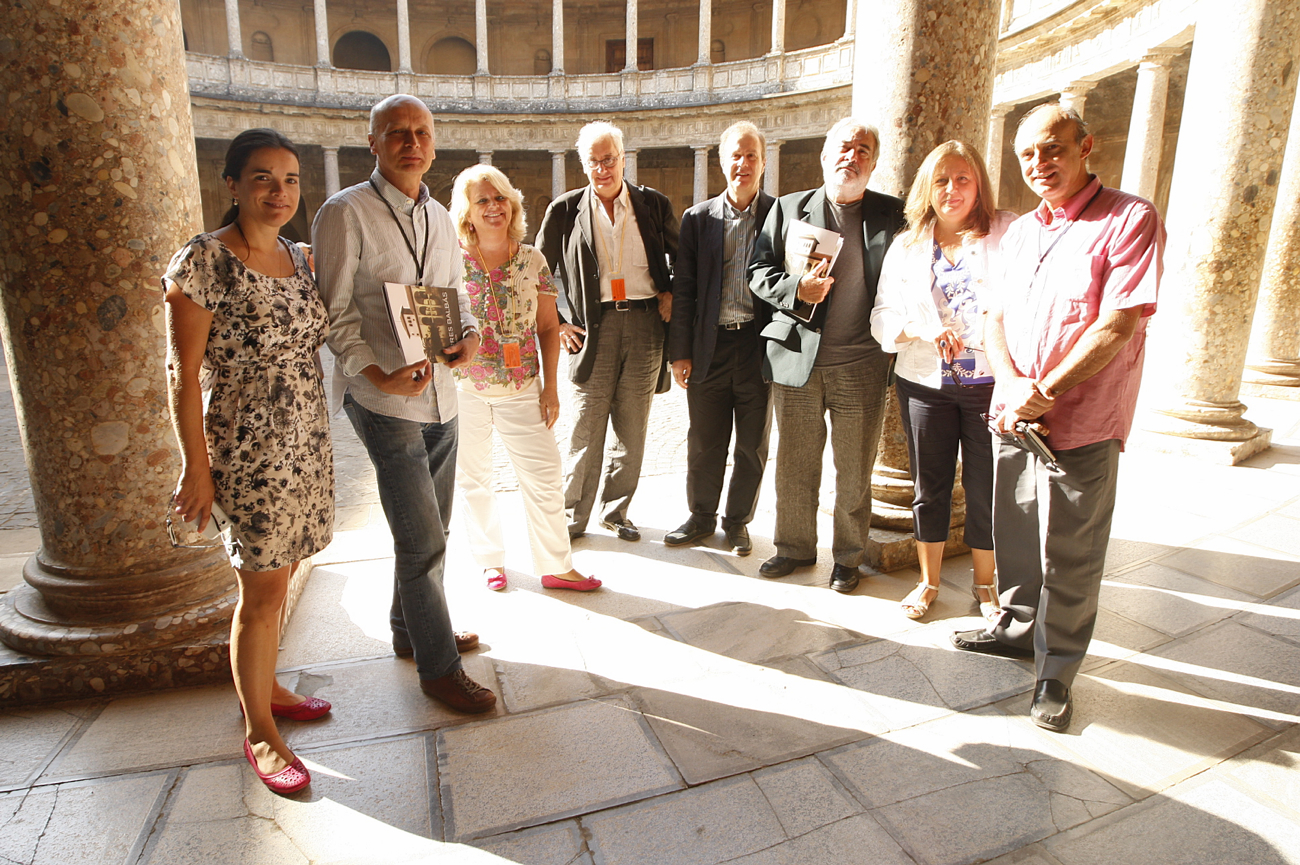The Alhambra of the architect Leopoldo Torres Balbás, his life and work, centre stage at the Palace of Charles V
The Alhambra that the architect Leopoldo Torres Balbás (1888-1961) discovered in 1923 after his appointment as conservator of the monument, as well as his more personal, biographical side have been the subject of discussion on the second day of the course entitled The internalization of conservation criteria in cultural heritage: from the Athens Charter to the Vienna Memorandum, a propos of Torres Balbás, organized by the Council of the Alhambra and Generalife, in collaboration with the Mediterranean Centre of the University of Granada.
The architect and professor at the Polytechnic University of Valencia, Julián Esteban Chapapría, opened the morning session with a personal and professional description of Torres Balbás and an analysis of the architect conservators of monuments between 1929 and 1958. “His life is a metaphor for the history of Spain” explained Chapapría, who defined Torres Balbás as “a sincere man who defended the truth above all other things. He loved the Alhambra and always looked back with nostalgia on the years he spent at the monument as its architect conservator from 1923 to 1936″.

For her part the Director of the Council of the Alhambra and Generalife, María del Mar Villafranca, made a tour of the Alhambra that Torres Balbás found on his arrival and of the museological and museographic adaptations he made to ensure “that the public visit was more friendly. The challenge he faced was to ensure that the visitors would see the space as a palace-city rather than just a group of beautiful palaces. He immersed himself so much and believed so deeply in his work that he personally explained the Alhambra to numerous personalities of the period such as for example the composer Manuel de Falla, whom he accompanied on his visit”.
Afterwards the Secretary-General of the Council of the Alhambra and Generalife, Victoria E. Chamorro, centred her talk on the history of the public visit to the Alhambra and its development over the years. Lastly, Jose Tito Rojo and Manuel Casares, both botany professors at the University of Granada reviewed the way the gardens of Torres Balbás at the Alhambra combined tradition and modernity.

Until next Friday, architects, restorers and conservators will be discussing the contributions made by Torres Balbás to the history and conservation of cultural heritage. 50 students will also be participating in this forum for debate and analysis which is taking place in the Palace of Charles V.
More infromation on https://twitter.com/alhambracultura
Follow us on https://twitter.com/alhambracultura





 Contact
Contact
















